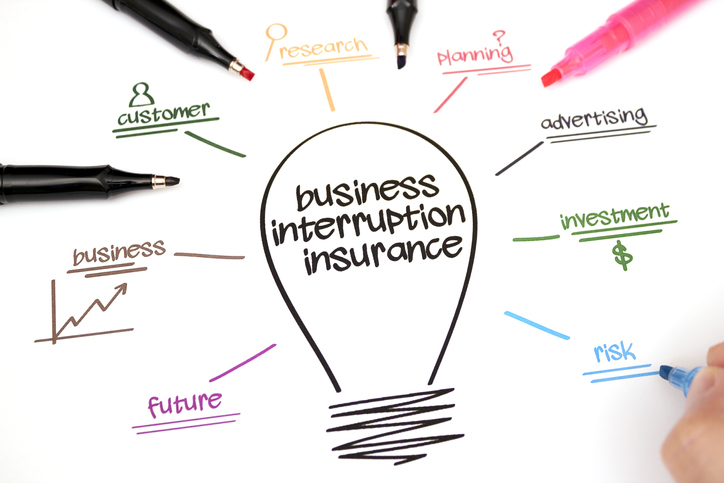Three years on from the height of the Covid-19 pandemic, the world of business interruption insurance has changed radically.
In 2020, policy confusion reigned, with small businesses uncertain of what exactly was covered by policy and therefore what could be claimed. With no clear answers and uncertainty for both insurers and businesses, the Financial Conduct Authority (FCA) stepped in with a test case, designed to test policy wording first at the High Court, and then, following a successful appeal to clarify wording further, at the Supreme Court in 2021.
>See also: Small firms win pay-outs in Covid business interruption insurance ruling – A Supreme Court ruling states that small businesses should get pay-outs on their Covid-19 business interruption insurance claims
The test case looked at a number of policies across a wide range of sectors, and its success at both the High Court and the Supreme Court gave clarity to thousands of small businesses and ensured that they received cover where previously it may not have been possible.
For example, wording was unclear regarding what amounted to a disease, and what peril would therefore trigger the clause. There was also a decision to clarify prevention of access clauses, as well as hybrid clauses which linked disease and access prevention. In the case of the former, the Supreme Court decided that businesses no longer had to receive a direct order preventing access to the premises from the local authority or central government. It also clarified that an insurance claim could still be made if only partial access be restricted, rather than no access to the premises as a whole, and/or if only a part of the business was affected rather than all of the business.
As a result of both the High Court and the Supreme Court decisions, policyholders are in an advantageous position when claiming for business interruption insurance. The FCA has taken a keen interest in ensuring that insurers abide by the decisions and have provided guidance and expectations in areas such as the speed of processing claims. This means that small businesses may find their claims are processed at a quicker rate than previously predicted, or, if there is a longer process to undertake, they may find the insurer will make an interim payment; both of which will be beneficial as the cost of doing business crisis continues.
The decisions by the High Court and the Supreme Court mean that businesses are more supported than ever when it comes to making insurance claims for business interruption arising from the Covid-19 pandemic, with payouts arriving faster than before. However, to ensure a claim is successful, there are still things that a business needs to do to prepare.
Making a claim on your business interruption insurance
The most important thing is to collate all data and documentation relating to a claim early, so that it is easily accessible and in one place, and to seek professional advice where appropriate. Gathering financial information such as proof of revenue loss, for example, is vital, and a professional advisor will be able to provide guidance as to what is relevant and what may not be.
It is also important for a business to follow the claim procedures that are mandated in the insurance policy to the letter, as this can affect the progress of a claim and may be prejudicial to it. Ensuring that all timescales, formatting and other rules are adhered to will give a business the best chance of making a successful claim that won’t be denied on a technical error such as non-cooperation.
Should a business interruption insurance claim be unsuccessful, there are still methods to recoup losses. For example, a business could look to the Financial Ombudsman Service (FOS) to make a complaint and begin an investigation. Whilst this process is free, accessible and can be initiated after the final decision by the insurer has been made, it is important to note that the FOS can uphold the insurer’s decision, and it is not a guaranteed path to success.
Another route would be to seek professional assistance and litigate, bringing a claim through the courts. Whilst this has many advantages in that the business will be supported by a legal professional, it is important to consider the cost implications of this action.
A final way to recoup losses could be to examine the service of the broker and seek to understand if the business has been ill-advised surrounding the insurance policy and expected cover. If this is the case, a professional negligence claim may allow a business to recover at least some of its losses.
While the decision of the courts has proved advantageous to small businesses, they should be aware that insurers are likely to be looking at future policy wording should another pandemic event arise. Therefore, it is always important to read through new insurance policies carefully and to check with the broker that the cover offered meets the needs of the business to ensure that the business knows exactly what will qualify for a claim.
With the High Court, Supreme Court and FCA onside, small businesses are currently in a positive position when it comes to making successful business interruption insurance claims. By ensuring that all policies are clearly understood, accurate records are maintained and evidence is easily accessed should the need for a claim arise, small businesses will maximise their chances of success.
Steven Skiba is legal director and dispute resolution expert at law firm, Shakespeare Martineau
Further reading
Business insurance: 10 common questions answered – Without the right business insurance, your company could find itself in financial hot water
What business insurance do I need as a sole trader? – What are the main types of business insurance for a sole trader and what if I’m working from home?
Do I need retail insurance for my small business? – In this guide, we delve into what retail insurance is, what you need by law and what kind of restrictions you should be clued-up on





